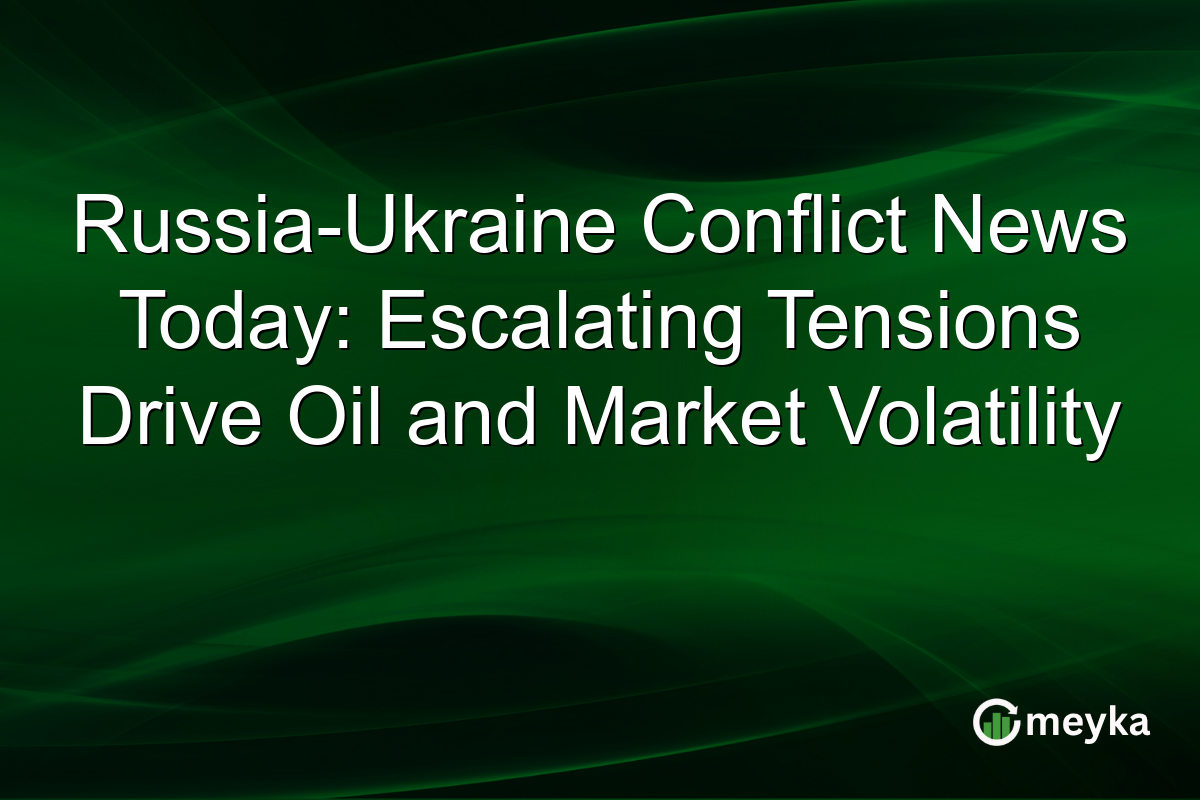Russia-Ukraine Conflict News Today: Escalating Tensions Drive Oil and Market Volatility
The ongoing Russia-Ukraine conflict is once again capturing global attention as new military actions have reignited concerns. This escalation has led to a surge in global oil prices, influencing market volatility. With potential supply disruptions looming, investor attention is shifting towards energy stocks and commodities. Understanding these dynamics is key for market participants navigating this turbulence.
Oil Prices Surge Amid Rising Tensions
Global oil prices have reacted sharply to the renewed military activities between Russia and Ukraine. Brent Crude (BRN00) traded at $98 a barrel, while WTI Crude (CL=F) reached $95. These increases reflect fears over potential disruptions in oil supplies from a key global region. CNBC reports that this surge is the highest in recent months. These fluctuations are directly tied to geopolitical developments, and traders are responding swiftly to any new information. Concerns about sanctions and supply routes have heightened the stakes, underpinning investor movements in commodity markets. As a result, the energy sector is experiencing heightened interest, with many investors eyeing these shifts closely for any trading opportunities.
Market Impact: Stocks and Energy Firms
The escalation has spilled over into stock markets, with investors keeping a keen eye on energy company shares. Stocks within the energy sector are gaining as oil prices climb, reflecting broader market trends. Companies like ExxonMobil and Chevron are seeing increased trading activity. On the other hand, sectors reliant on oil as an input are experiencing cost pressures, affecting their stock performance. The complex interplay of rising prices and geopolitical risk means investors are carefully balancing these dynamics to optimize their portfolios. Discussions on Reddit highlight the strategic plays investors are considering, further showcasing market sentiments.
Energy Market Tension and Future Outlook
As tensions persist, the energy market remains on edge. The possibility of prolonged conflict poses the risk of sustained high oil prices, potentially fueling inflation globally. Investors are considering futures and options as hedges against these uncertainties. Analysts warn that prolonged destabilization in the region could lead to broader economic implications beyond energy markets. This outlook suggests a need for caution among investors, particularly those with significant exposure to energy-dependent sectors. The balancing act between risk and reward continues to be a central focus for those engaged in the global markets. Bloomberg captures the essence of these challenges, underlining the importance of strategic investment approaches.
Final Thoughts
The Russia-Ukraine conflict has undeniably injected volatility into the global markets, with oil prices taking center stage. As tensions rise, the focus on energy stocks and commodities is intensifying. For investors, understanding the link between geopolitical events and market dynamics is crucial. Navigating these turbulent times requires careful consideration of market trends and geopolitical risks. While the energy sector experiences a boost from rising prices, other industries face challenges from increasing costs. Investors are advised to remain vigilant and adaptive, closely monitoring developments to mitigate risks and seize potential opportunities. Ultimately, staying informed and strategically agile will be key to thriving amid the current financial landscape.
FAQs
The conflict heightens fears of supply disruptions, causing oil prices to rise due to increased geopolitical risks. This affects energy market stability and can lead to broader economic impacts.
Energy stocks are often positively impacted, while sectors that rely heavily on oil, like transportation and manufacturing, may face cost pressures, affecting their stock performance negatively.
Investors should closely monitor geopolitical developments, consider hedging strategies, and maintain diversified portfolios to mitigate risks associated with fluctuating market conditions.
Disclaimer:
This is for information only, not financial advice. Always do your research.






